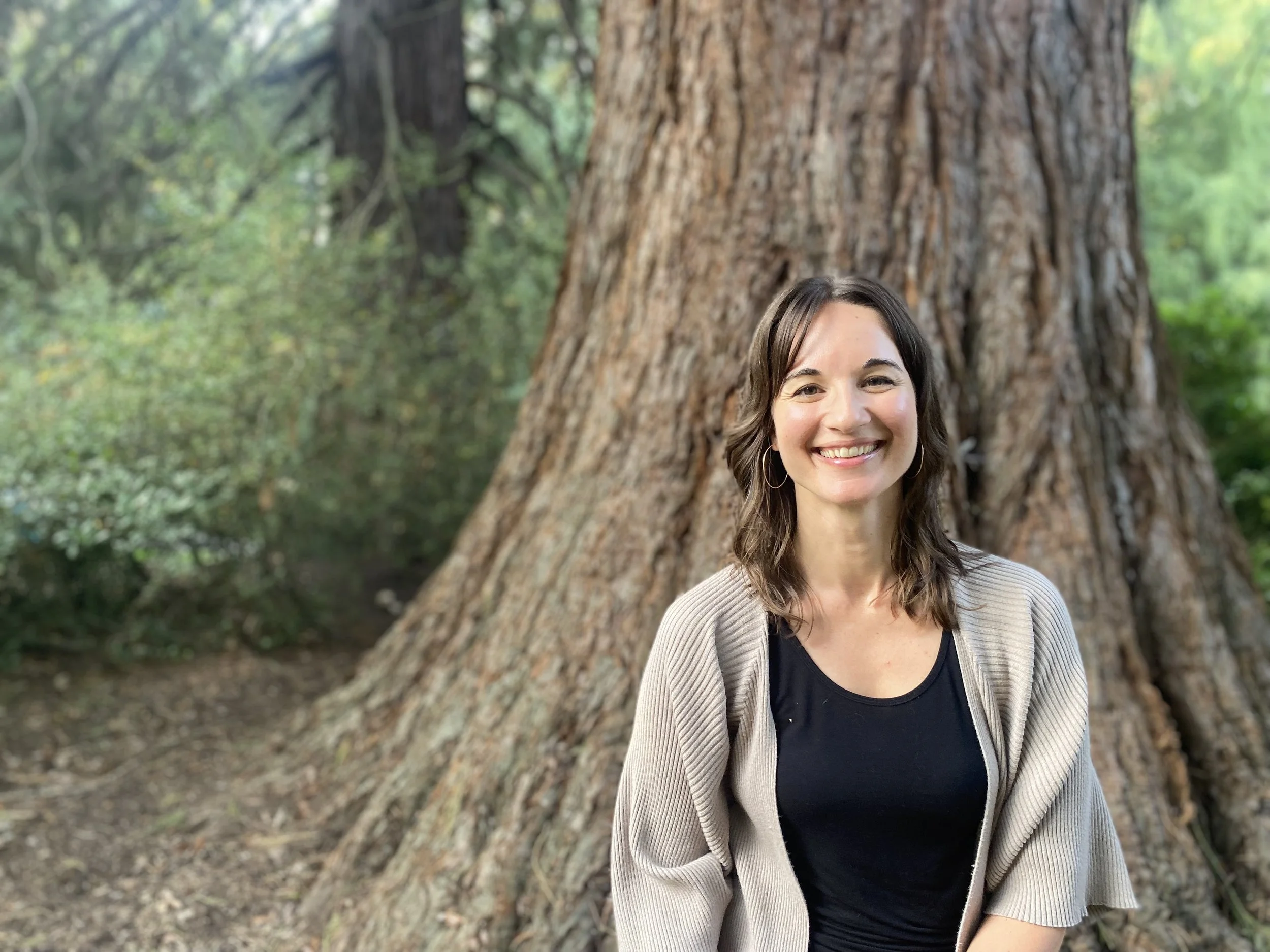My approach
-
Attachment-based therapy focuses on current relationships, as well as those earlier in life, with the intention of “rewiring” unhelpful patterns of relating to yourself and others. It’s less about analyzing what happened in the past (although we may do that sometimes), and more about developing a sense of trust in yourself that will form the basis for secure and fulfilling relationships in your present.
We will work with “the here and now” as it comes up in therapy, with the assumption that the therapeutic relationship is full of helpful information about how you relate to yourself, others, and the world. The “stuff” that blocks you from connecting with others outside of therapy will likely also come up for you in the therapeutic relationship. The difference is that the nature of my role as therapist allows me to be both an authentic participant in the relationship as well as an objective observer and supporter. This slows down patterns of interaction with others and helps you experience a new, more authentic way of connecting with yourself and others. Over time, this changes how you show up in relationships outside of therapy.
-
Somatic therapy works with your whole system, including body and mind, to address trauma and other experiences that keep you feeling stuck. Talking and analyzing are important parts of therapy, and often bring great insight, but some people find that talk therapy alone does not get to the “root” of what brings them to therapy.
We know from current neuroscience research that certain experiences can be held in our nervous systems in such a way that we may not be able to resolve these experiences through talk alone. Sometimes, it feels as if events are still happening, even when they are long past. This can lead to feeling constantly “on” and overwhelmed, or shut down (or sometimes both).
Somatic therapy can look a lot like traditional talk therapy at times, but I also support you to explore what is happening in your body, including sensations, movements, imagery, and emotions. Somatic therapy helps you to renegotiate and process these past experiences so that your nervous system can actually move on from past events, and you can feel safe and at home in your body.
I utilize Somatic Experiencing, among other approaches, in my practice. You can read more about Somatic Experiencing here.
-
Many people feel empowered when they have concrete, tangible practices to help them stabilize overwhelming experiences or emotions. This can look like using mindfulness to explore habitual patterns of thinking, or learning a specific grounding or breathing practice that you can use when feeling overwhelmed. This isn’t about making distressing emotions or experiences go away (if you figure out how to do that, please let me know!) Rather, it’s about making space inside you so that you access the most creative and grown-up parts of yourself when faced with challenges.
My priority as a therapist is building a secure relationship with you where you feel seen, cared for, and safe to explore the uncomfortable or overwhelming parts of your life.
Therapy is a relationship, and I aim to show up in a genuine way. I’m deeply empathetic, direct when needed, and I often use humor. In my work with clients, I use a combination of relational and attachment based therapy, somatic therapy, and cognitive therapy.
We’ll work together to find a way forward that fits who you are and addresses what’s most important to you.
I believe that, while mental health is typically seen as an individual problem, we can’t separate mental health symptoms from systemic issues. Alongside your individual experience, we may also look at ways that systemic and historical issues may be impacting you.
Psychotherapy is not the only thing that helps people heal.
Connection to community, culture, nature, and other forms of healing are also helpful for many people. If you choose to engage in therapy, my hope is that, in addition to feeling supported in therapy, you’ll ultimately be able to be more present and available for other sources of connection, healing, and belonging in your life.
I am kink- and poly-aware, and LGBTQIA affirming.
About me
As a therapist and social worker, I’ve worked with teens and adults experiencing anxiety and depression, and recovering from grief, loss, and trauma. Before I became a therapist, I learned Portuguese through living and working with the Brazilian community in my hometown and later worked as a medical interpreter. I have also taught yoga, trained horses, and taught horseback riding, all of which inform how I support people to safely connect to their inner experience.
One of the things that makes me a good therapist is the personal work I’ve done, both as a client in therapy, and as a student of yoga and mindfulness. Going through my own experiences of grief and loss as well as growth and connection in relationships gives me the capacity to feel deep empathy for others, as well as hold space for big feelings and experiences.
I have a Master of Social Work degree from the University of Washington and a Bachelor’s degree in Culture and Identity from Lesley College. I’m independently licensed as a Clinical Social Worker in the states of Oregon and Washington. In addition to my graduate training, I have training in Somatic Experiencing, parts work (in the same vein as Internal Family Systems), Emotion Focused Therapy, Acceptance and Commitment Therapy, and a 200 hour yoga teacher training.
I’m originally from the east coast and have lived in the Pacific Northwest since 2009.
About Leoa
If we meet online, you’ll probably meet Leoa! She has very few formal qualifications, but she likes to make an appearance in therapy sessions from time to time. She also enjoys chasing crumpled up receipts, birdwatching, and doing laps in the wee hours of the morning.

